'I am rooting hard for you': As Trump remains defiant, here's how past one-term presidents conceded
No presidential candidate in modern history has ever refused to concede.
As President Donald Trump remained defiant after Joe Biden became the apparent winner of the 2020 presidential election on Saturday, photos of the handwritten letter outgoing President George H.W. Bush wrote to President-elect Bill Clinton on Jan. 20, 1993, flooded social media.
Bush, the incumbent president who lost his bid for a second term to the Democratic governor of Arkansas after an intense fight, gave the heartfelt letter to Clinton on his Inauguration Day. He not only offered his advice, but expressed his support as his opponent moved into the White House.
"Dear Bill, when I walked into this office just now I felt the same sense of wonder and respect that I felt four years ago. I know you will feel that, too," the letter began. "I wish you great happiness here."
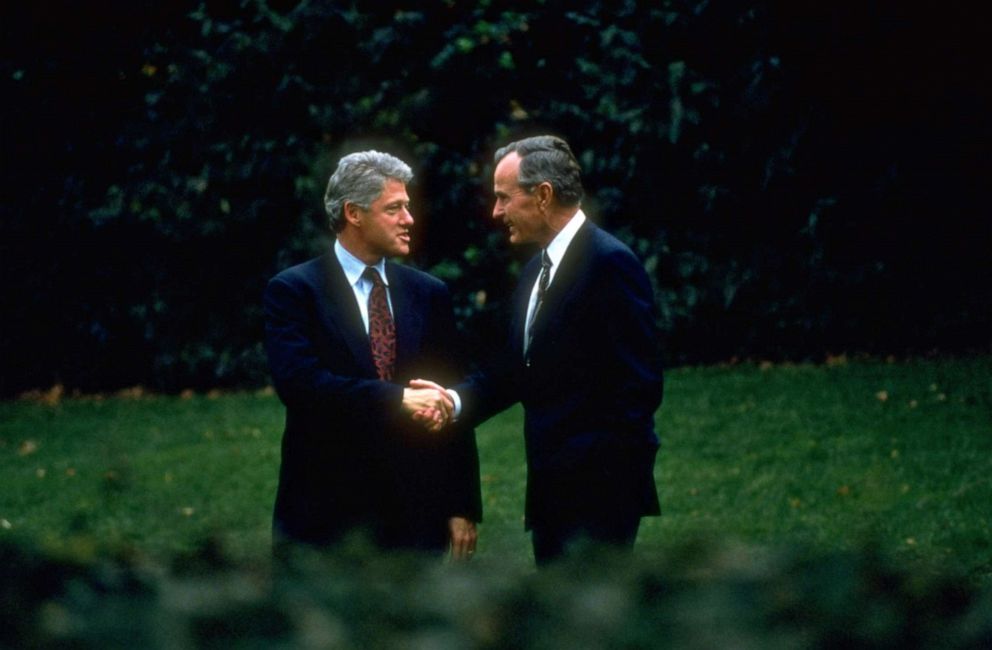
"There will be very tough times, made even more difficult by criticism you may not think is fair. I'm not a very good one to give advice; but just don't let the critics discourage you or push you off course," he continued. "Your success now is our country's success. I am rooting hard for you. Good luck, George."
Clinton and Bush became great friends later and weeks before the former president's death on Nov. 30. 2018, Clinton read the letter to presidential historian Mark Updegrove.
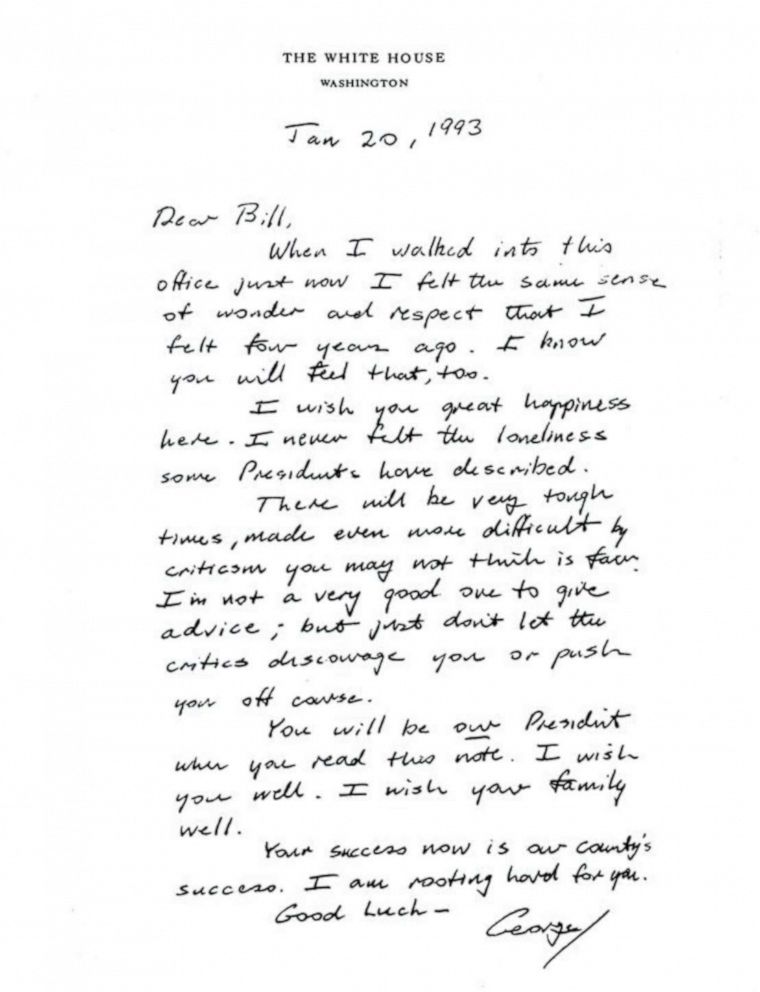
"I love that letter," Clinton told ABC News. "I thought it was vintage George Bush. I thought he meant it, but I also thought he was trying to be a citizen in the highest sense of the word. It was profoundly moving to me, personally."
The letter came after Bush delivered a conciliatory and hopeful concession speech on Nov. 4, 1992 -- one day after Clinton was projected to win the election.
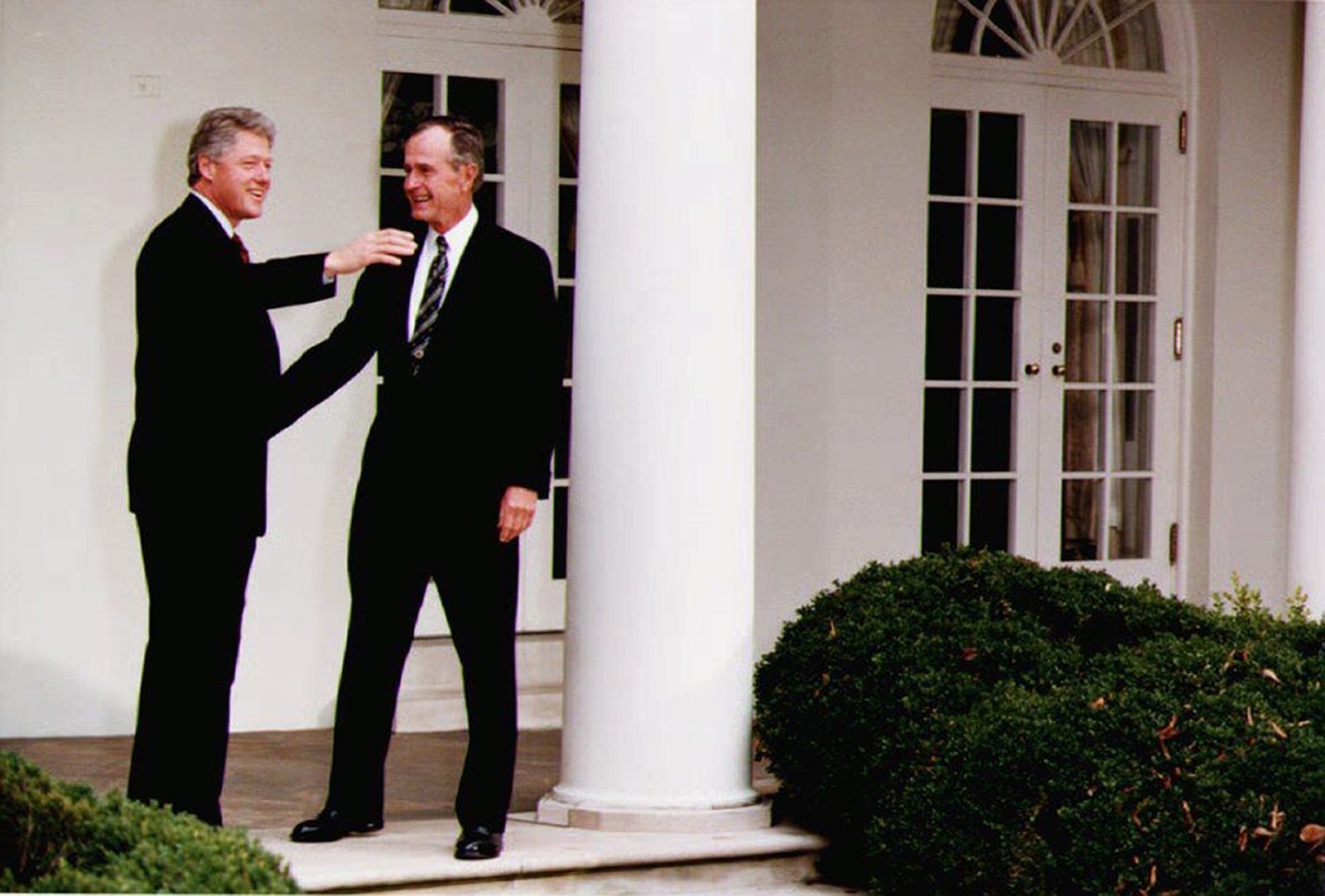
"Here's the way we see it and the country should see it -- that the people have spoken, and we respect the majesty of the democratic system," Bush said in his opening remarks, vowing to work with the incoming administration on a "smooth transition" and urging his supporters to "stand behind our new president."
Trump is set to join Bush in a small group of incumbent presidents who lost their bids for a second term. Excluding presidents who only ran for one term and those who ran after being appointed to the office when a president could no longer serve, there are only nine one-term presidents in U.S. history who lost their reelection bids.
"Trump joins this really unique club, and I think that uniqueness of that experience heightens already preexisting tensions," presidential historian and ABC News contributor Leah Wright Rigueur said. "So for presidents who can [concede] quickly, and without rancor without vitriol ... it's important for setting the tone of what democracy and what democratic nations do."
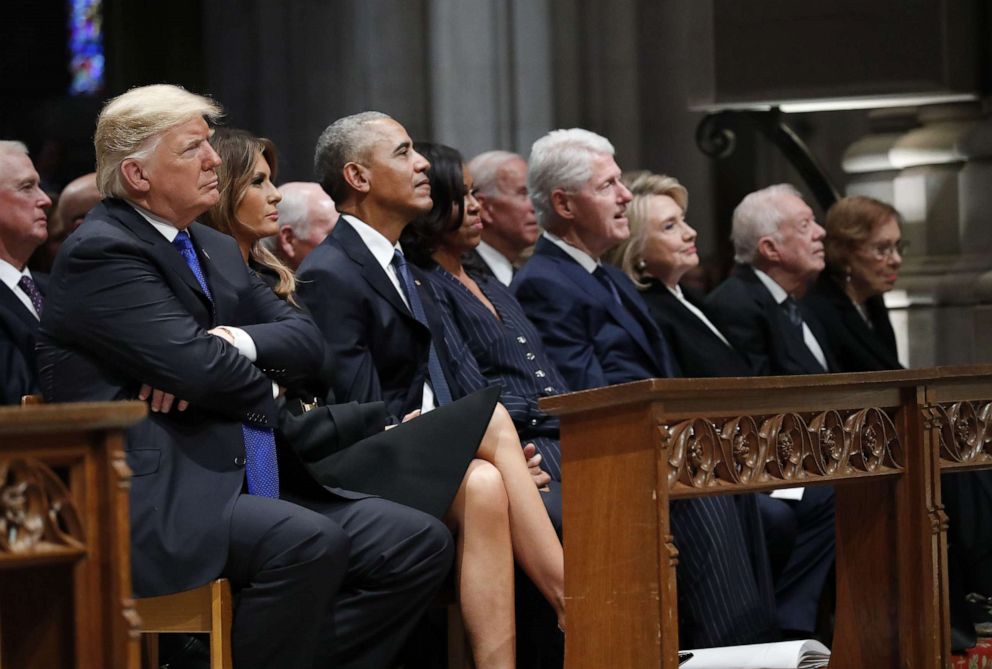
Trump falsely declared on election night, when he held a lead in several key states, that he won the race and alleged without evidence, after the count started to swing Biden's way, that the election was being stolen from him and that fraud had been committed.
He reiterated much of the same on Saturday, following a round of golf during which Biden was projected as winner, when he baselessly claimed on Twitter he had won the election.
Although presidential concession speeches have not always been a tradition and many elections were bitterly fought, Rigueur said that "absolutely nothing" in the past compares with Trump's post-election behavior.
The White House declined to comment on several news organizations projecting Biden as the apparent winner of the election on Saturday and asked if Trump would call Biden to concede, White House deputy press secretary Judd Deere told ABC News, "No scheduling updates."
"What's so remarkable about Donald Trump is that there has been no acknowledgement that he will concede," Rigueur said, adding that "given Trump's track record, I don't know that he will ever say the statement, 'I did not win.'"
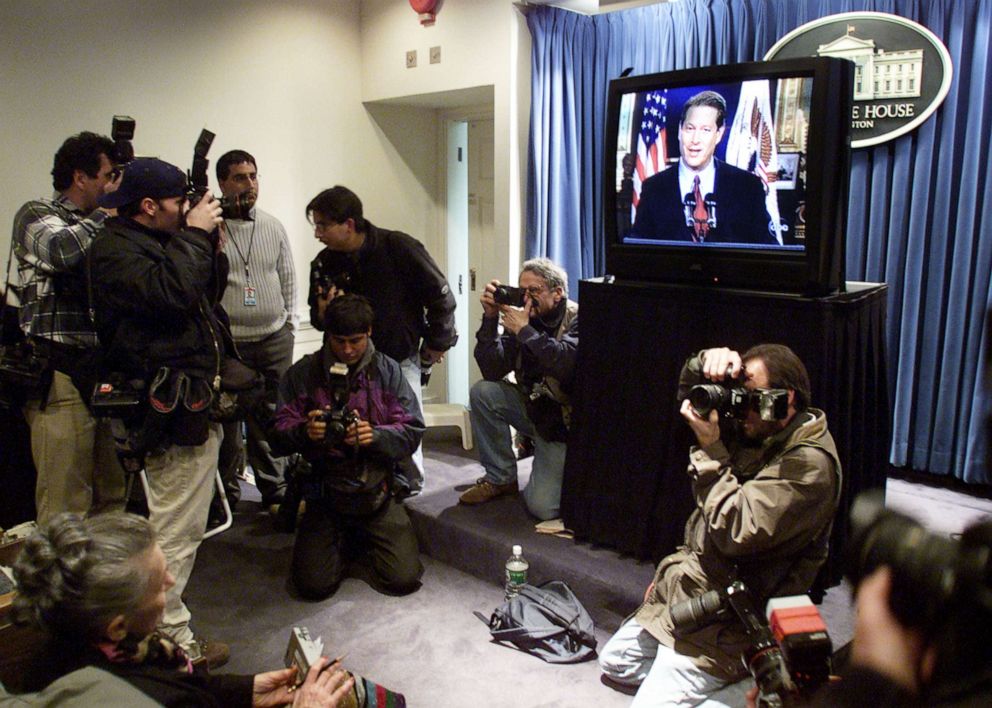
Even after the bitter presidential race between Republican George W. Bush and Democrat Al Gore in 2000 -- which prompted a recount in Florida as chaos and uncertainty dragged on for 36 days -- Gore conceded after Bush won Florida's electoral votes.
"I accept the finality of the outcome, which will be ratified next Monday in the Electoral College," he said. "And tonight, for the sake of our unity as a people and the strength of our democracy, I offer my concession."
Democratic Illinois Gov. Adlai Stevenson delivered the first nationally televised concession speech in U.S. history after he lost in a landslide to Republican Dwight D. Eisenhower. Before television, Democratic New York Gov. Al Smith delivered the first radio concession speech in 1928 after losing to Republican Herbert Hoover.
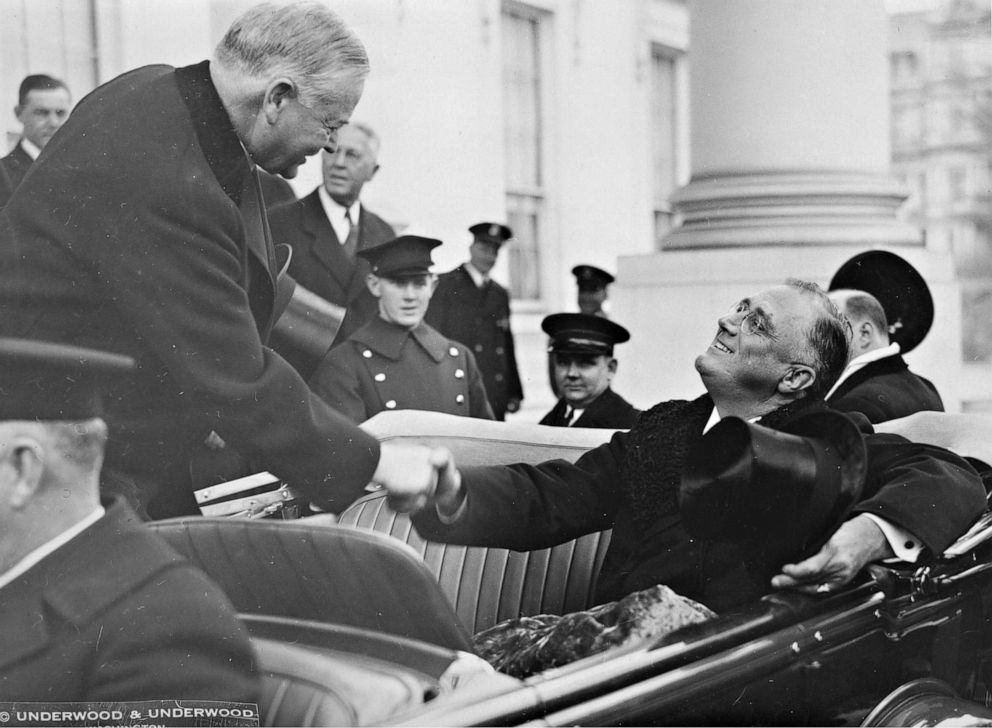
And when Hoover lost his reelection bid to Democrat Franklin Delano Roosevelt in 1932, he conceded via a telegram in which he congratulated Roosevelt, wished him "a most successful administration" and concluded by saying, "In the common purpose of all of us, I shall dedicate myself to every possible helpful effort."
The only incumbent presidents to lose reelection bids since Hoover are President Jimmy Carter, who lost to Republican Ronald Reagan in 1980, Bush who lost to Clinton in 1992 and now, Trump's apparent loss to Biden in 2020.
In a tearful concession speech on Nov. 5, 1980, Carter acknowledged that the loss "hurt," but said, "I have a deep appreciation of the system, however, that lets people make the free choice of who will lead them the next four years."
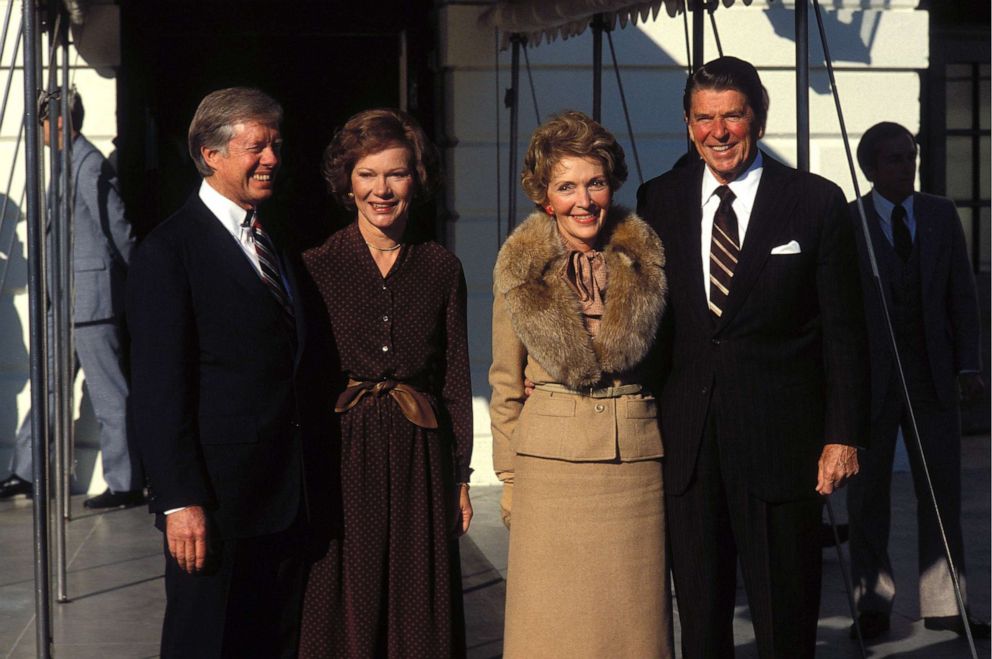
The outgoing president then shared with supporters a telegram that he sent to Reagan, where he congratulated the president-elect and pledged his "full support" in bringing about a smooth transition.
Rigueur, a professor at the Harvard Kennedy School of Government, said that conceding an election is "a sign of graciousness," and "because of the weight of the presidency, this is not something that's frivolous."
She added that she is "concerned" about the possibility of Trump not conceding, "particularly given how divisive this election was, and given that 70 million people did cast ballots for Donald Trump. He should be modeling good and decent behavior for them and he's not."
ABC News' Ben Gittleson contributed to this report.




